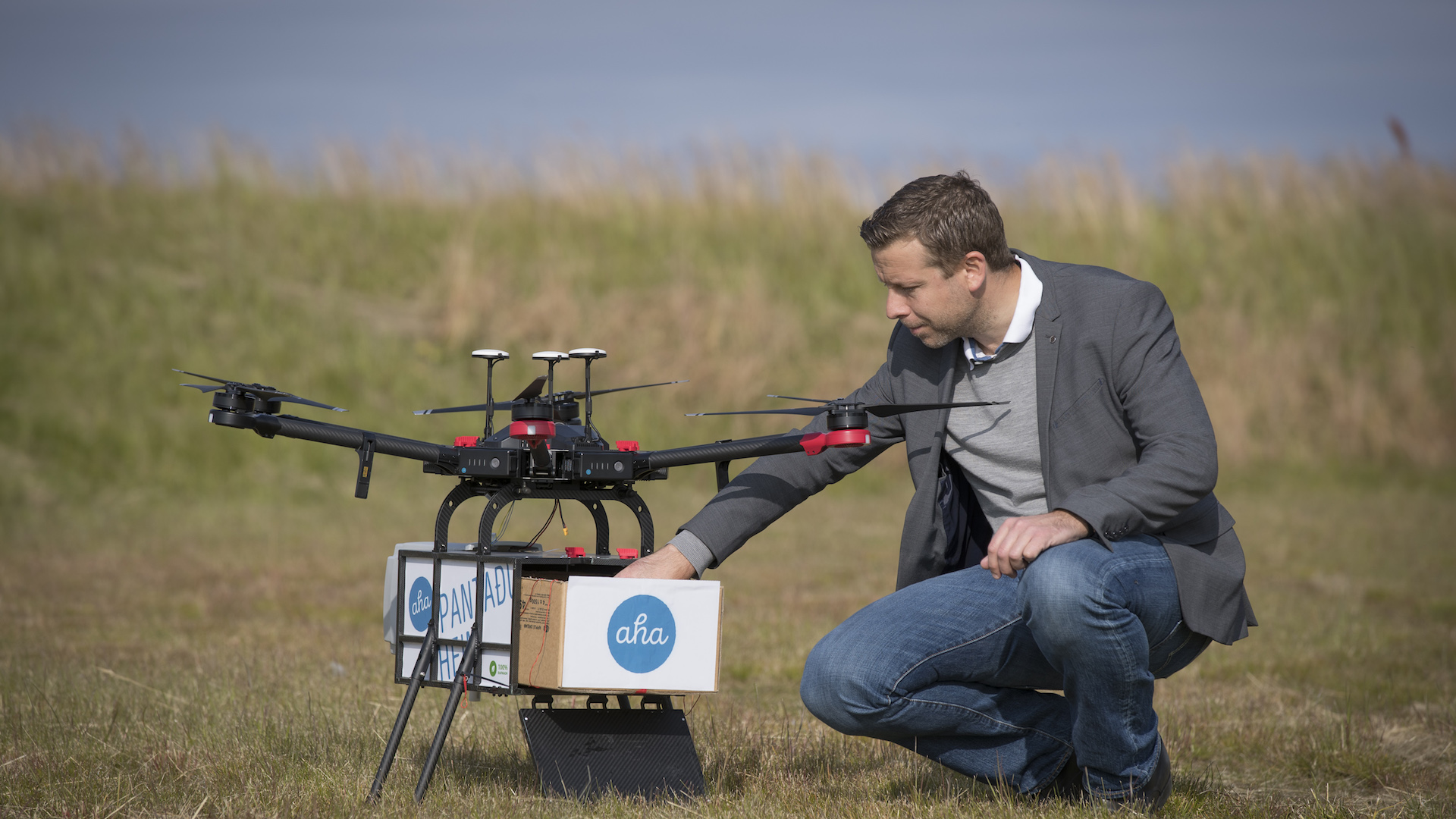

The Israeli drone company Flytrex launched the world’s first autonomous drone delivery system in Iceland last year through a partnership with online retailer Aha, bringing on-demand aerial deliveries to a large portion of the capital Reykjavik’s citizens. While this was an impressive and tangible feat, it was, still, merely a limited trial phase. According to the BBC, Aha is preparing to expand delivery drone operations substantially over the next two years.
Aha (think of it as Iceland’s Amazon.com) is officially permitted to aerially delivery along 13 routes around the capital. Additionally, the company has been granted permission to cover up to 2,300 foot (700 meters) detours to reach its customers. Ultimately, this allows the retailer to effectively serve half the city with drone deliveries of goods with Iceland, Flytrex, and Aha impressively differentiating themselves from their European counterparts in the field.
There are, of course, still significant privacy concerns and warranted fears of dangerous drone malfunctions above populated areas which need to be properly managed and addressed by both the government and the two businesses involved. Not everyone is a fan of drones whirring around their neighborhoods, and perhaps assuaging the locals before letting this expansion take off is the right move. Flytrex founder Yariv Bash, however, sees this differently.
“You’re not going to see a refrigerator flying above your house anytime soon,” said Bash, in reference to potential malfunctions merely resulting in a maximum payload of 6.9 pounds falling from above (which, frankly, could do some damage). In terms of visually polluting the cityscape or privacy concerns, Bash is adamant that his business won’t intrude too harshly on the locals. “When they are whizzing at 50 kilometers per hour (about 30 miles per hour), you can barely see the drone,” he said.
As for acclimating the public to the general concept of aerial vehicles routinely flying through Reykjavik’s residential airspace, Bash isn’t too worried. “I think it is going to be a lot easier than people think,” he said. “Once you saw an iPhone, you realized that it is the future. I believe the first time a neighbor of yours orders his bottle of wine that he forgot for dinner and he gets it in 15 minutes, that’s it, you want it.”
Ultimately, Bash isn’t too far off. While there are concerns regarding noise pollution and encroachment on personal privacy, there are benefits to implementing a cohesive drone delivery system. Not only are UAVs more environmentally friendly than standard delivery methods, but they can bypass traditional infrastructure and cut down on delivery time, as well as cost. Fortunately, Reykjavik’s citizenry can weigh the pros and cons for themselves and vote on this new method with their wallet when the time comes.